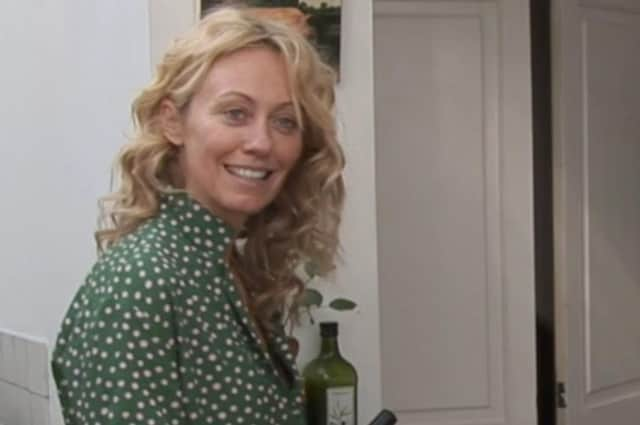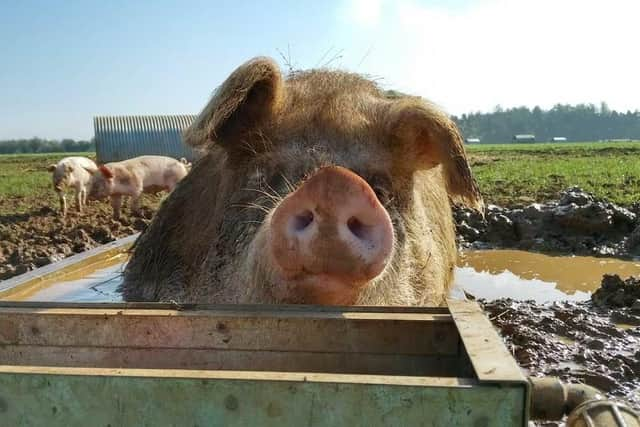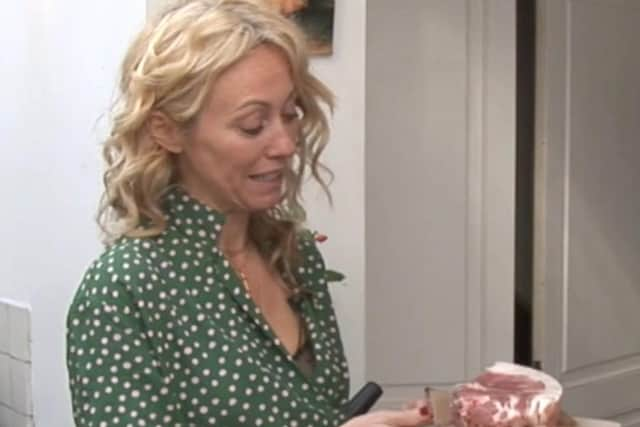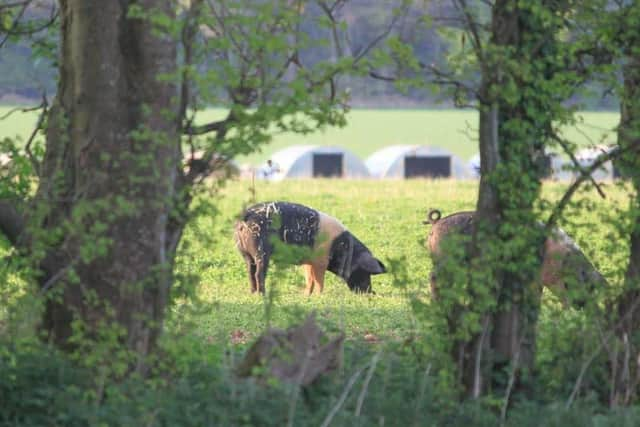Watch TV chef Clodagh ‘Rooting for Real Farms’ in new video series


In the video series, top chefs and high welfare farmers urge people to stop factory farming by using the power of their purse to only buy from local, high welfare farms.
While preparing a delicious pork ragu recipe she learnt when living in Italy, Clodagh describes her visit to a pig factory farm and highlights the case for better quality through high welfare meat.
Advertisement
Advertisement
Clodagh, who is the author of eight cookbooks, sources her meat from farms like Eastleach Downs Organic Farm, which is run by Helen Wade and has free roaming pigs that are sold from its own on-farm butchery.
Now, Clodagh and Helen will join dozens of the UK’s leading foodies, including chefs Hugh Fearnley Whittingstall, Gill Meller, Olia Hercules, and Ching He Huang, as well as actor Dominic West, by taking part in the campaign video series to ‘turn their noses up’ at factory farms and support local farmers.
A national alliance of farmers, foodies, animal welfare campaigns, including the Soil Association and Sustainable Food Trust, share the short videos which have had hundreds of thousands of views across social media, to promote their campaigns for a local, high welfare food system.
Clodagh commented: “I’ve seen the conditions that factory farm pigs are kept in, it makes me upset just thinking about it now.
“They’re in little pens and they have no place to move.


Advertisement
Advertisement
“If I think of any of the animals that I have living like that, I just feel we’re not doing a good job in this world as humans.
“It’s really important to cook using high welfare meat, not just in terms of nutrition, taste and texture, but so that we vote with our wallets for the type of food system we would like to see, for local high welfare British farmers and not those horrible factory farms.
“I am absolutely rooting for real farms and turning my nose up at factory farms.”
Farmer, Helen Wade, added:“For me, the welfare of the animal is the most important thing, pigs are very intelligent creatures and they should have the best possible life we can give them.


Advertisement
Advertisement
“We rear rare breed Saddleback pigs which have a bit more fat but, as chefs will tell you, fat is flavour.
“The difference between the pigs living here and in factory farms is huge.
“In factory farms, pigs are kept in concrete pens with slatted floors.
“They bite each other’s tails through boredom and frustration, which is why their tails are routinely docked, and are often kept in semi-darkness all their lives, while the mother pigs are in a farrowing crate in which they can probably only take a step forward and backwards and lie-down.


Advertisement
Advertisement
“It’s such an unnatural environment and so far from being normal for a pig to be kept like that.
“We pride ourselves at Eastleach Downs Farm by giving all our pigs the life they deserve, a more natural life.”
Tracy Worcester, director of Farms Not Factories, stated: “Leaving the European Union should mean signing trade deals that raise our food and farming standards rather than facilitate a race to the bottom with global corporations capturing and centralising production, slaughtering, processing, distribution and retail.
“Corporate monopolies are ill suited to food and farming as they increase animal cruelty, environmental pollution and the destruction of rural economies.
Advertisement
Advertisement
“We need to re diversify and localise our food system to allow farmers to raise their standards of food safety, animal welfare, and environmental protection and give them a fair price for their skills that feed our island.”
The ‘Rooting for Real Farms’ campaign is urging legislators to unleash the full powers vested in parliament from leaving the European Union, to make sure future trade deals prevent the import of meat from substandard farms to, not only sustain, but improve animal welfare, food and farming standards.